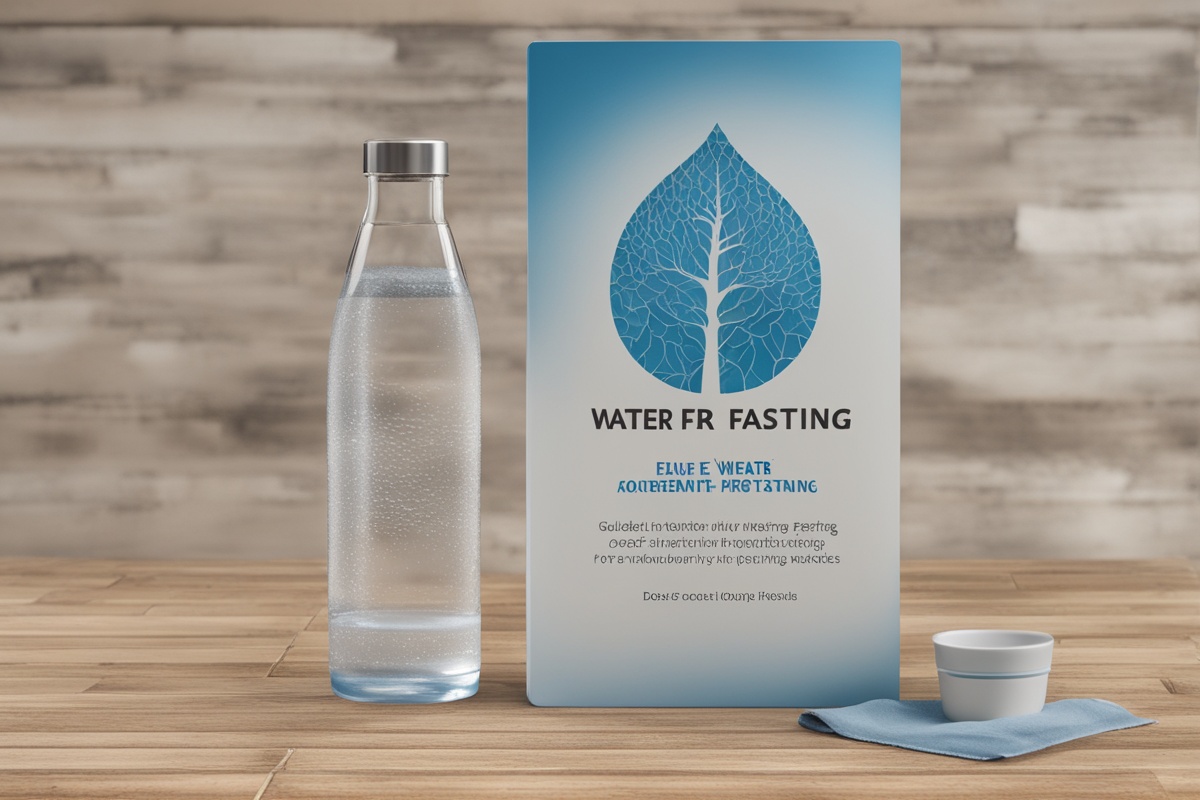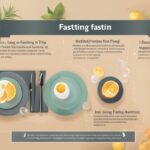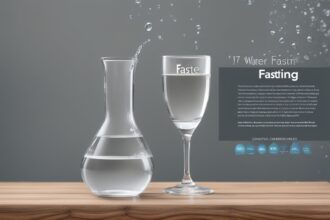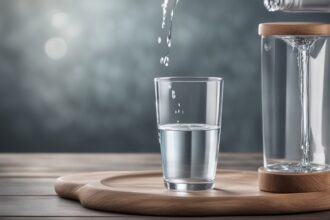Water fasting, a practice of abstaining from all food and drink except water for a set period, has gained popularity for its potential health benefits, including weight loss, improved mental clarity, and detoxification. However, one of the most critical aspects of a successful and safe extended water fast is maintaining optimal hydration. Extended fasts, which typically last beyond 24 hours, place unique demands on the body, and ensuring proper water intake is essential to avoid dehydration, electrolyte imbalances, and other health risks. In this post, we’ll explore the importance of optimal hydration during extended fasts, offering practical tips and insights to help you stay safe and maximize the benefits of your fasting journey.
The Importance of Hydration During Extended Water Fasts
During an extended water fast, your body relies solely on water for hydration since no food or other beverages are consumed. Water plays a vital role in nearly every bodily function, including regulating body temperature, flushing out toxins, and supporting organ health. Without adequate hydration, you may experience symptoms like dizziness, fatigue, headaches, and even more severe complications such as kidney strain or fainting. Optimal hydration during extended fasts ensures that your body can continue to function properly while adapting to the absence of food. It also helps mitigate the loss of fluids and electrolytes that naturally occur during fasting as the body breaks down stored glycogen and fat for energy.
How Much Water Should You Drink During an Extended Fast?
Determining the right amount of water to drink during an extended fast depends on several factors, including your body weight, activity level, climate, and individual needs. A general guideline is to aim for at least 2–3 liters (approximately 8–12 cups) of water per day. However, some experts suggest a more personalized approach, recommending 30–35 milliliters of water per kilogram of body weight. For instance, a 70-kilogram (154-pound) person would need about 2.1–2.5 liters daily. Listen to your body’s signals—thirst, dry mouth, or dark urine are indicators that you may need to increase your intake to maintain optimal hydration during extended fasts. Avoid overhydration, though, as drinking excessive water can lead to a condition called hyponatremia, where sodium levels in the blood become dangerously low.
Timing Your Water Intake for Maximum Effectiveness
Spacing out your water intake throughout the day is crucial during an extended fast. Rather than chugging large amounts at once, sip water consistently to maintain steady hydration levels. Start your day with a glass of water upon waking to replenish fluids lost overnight. Continue drinking small amounts every hour or so, especially if you’re active or in a hot environment. Some fasters find it helpful to carry a reusable water bottle as a reminder to drink regularly. Proper timing helps prevent dehydration spikes and ensures that your body has a constant supply of water to support detoxification processes and maintain energy levels. For more tips on creating a fasting schedule, check out our guide on How to Structure Your Water Fasting Routine.
Electrolytes and Hydration: Striking the Right Balance
While water is the cornerstone of hydration, extended fasting can deplete essential electrolytes like sodium, potassium, and magnesium, which are critical for nerve function, muscle activity, and fluid balance. Since plain water doesn’t replenish these minerals, some fasters choose to add a pinch of high-quality sea salt to their water or sip on electrolyte-enhanced water (without calories or sweeteners) during longer fasts. However, this should be done cautiously and ideally under medical supervision, as improper electrolyte intake can lead to imbalances. If you’re new to fasting, consider reading our post on Understanding Electrolyte Needs During Fasting to learn more about maintaining balance while achieving optimal hydration during extended fasts.
Signs of Dehydration to Watch For During a Fast
Even with the best intentions, dehydration can sneak up during an extended fast if you’re not vigilant. Common signs include persistent thirst, dry or sticky mouth, dark yellow urine, fatigue, dizziness, and headaches. More severe symptoms, such as rapid heartbeat, confusion, or fainting, require immediate attention and may necessitate breaking the fast to seek medical help. Monitoring your body’s signals is key to ensuring optimal hydration during extended fasts. Keep a journal to track your water intake and any symptoms, and don’t hesitate to adjust your approach if you feel unwell. For additional insights on recognizing dehydration, explore our article on Common Fasting Mistakes to Avoid.
Tips for Staying Hydrated Safely During Extended Fasts
Achieving optimal hydration during extended fasts requires more than just drinking water—it involves a mindful approach to your fasting practice. Here are some practical tips to help you stay hydrated safely:
- Use Quality Water: Opt for filtered or spring water to avoid contaminants that could irritate your system during a fast.
- Avoid Extreme Conditions: Limit exposure to excessive heat or intense physical activity, as these can increase fluid loss through sweat.
- Rest and Recover: Prioritize rest to reduce the body’s demand for water and energy during an extended fast.
- Break the Fast if Needed: If you experience severe dehydration symptoms, don’t hesitate to end the fast and rehydrate with electrolyte-rich fluids under guidance.
For more safety tips, refer to our comprehensive guide on Preparing for a Safe Water Fast, and if you’re considering longer fasts, our post on Extended Fasting: Benefits and Risks offers valuable insights.
Disclaimer: The information provided in this post is for educational purposes only and is not intended as medical advice. Water fasting, especially for extended periods, can pose health risks and may not be suitable for everyone. Always consult with a healthcare professional or qualified medical practitioner before starting any fasting regimen, particularly if you have pre-existing health conditions, are pregnant, or are on medication. Individual hydration needs vary, and improper fasting or hydration practices can lead to serious health complications.
References
- Mayo Clinic: Water: How Much Should You Drink Every Day?
- Harvard Health: The Importance of Staying Hydrated
- NCBI: Water, Hydration, and Health
- WebMD: Water and Weight Loss
- CDC: Water and Healthier Drinks
This content is for informational purposes only and not a substitute for professional advice.






